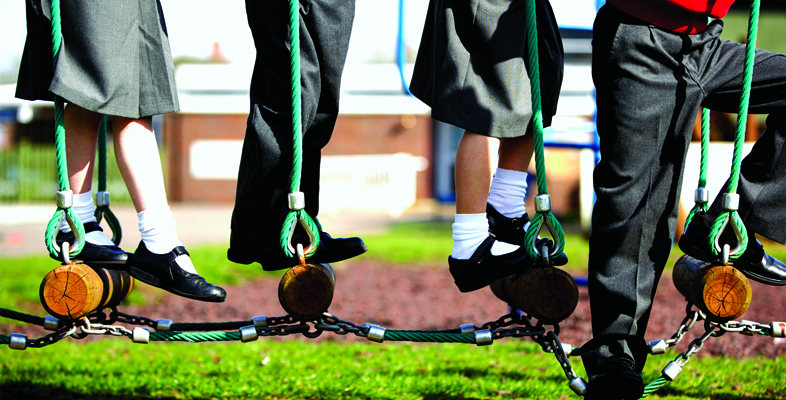Home » Course Layouts » Free Course Layout Udemy
Would you like to volunteer or find work in your local primary school? Are you thinking about becoming a teaching assistant, or becoming a teacher in the future?
0
18
English
English [CC]
- Learn basic syntax that can apply to any language.
- Learn what is a programming language and the basic concepts for beginners.
- Understand what is Javascript in it's truest form.
- Know the basic syntax of Javascript.
- Know some hidden quirks in Javascript.
Description
In this course, Primary education: listening and observing, you will have the chance to look inside primary schools, and watch and listen to children and teaching staff. You’ll also find out what head teachers look for in people who want to work or volunteer in a primary school.
This course is for anyone who wants to upgrade their knowledge of the primary school sector and ethical practices in education settings. The course is especially appropriate for primary school support staff (full or part time, paid or volunteer) and graduates preparing for teacher training.
The course presents a set of practice-focused readings and observational videos. You will learn about small-scale research in the primary school and observe children’s play and classroom learning, and listen to interviews with school staff and children. You will also explore cyber-bullying and the primary school curriculum.
If you wish to undertake any practical activities within schools you may do so with Disclosure and Barring Service (DBS) clearance in a school setting and with appropriate supervision and external assessment.
Enrolling on the course will give you the opportunity to earn an Open University digital badge. Badges are not accredited by The Open University but they're a great way to demonstrate your interest in the subject and commitment to your career, and to provide evidence of continuing professional development.
Once you are signed in, you can manage your digital badges online from My OpenLearn. In addition, you can download and print your OpenLearn statement of participation which also displays your Open University badge.
The Open University would really appreciate a few minutes of your time to tell us about yourself and your expectations for the course before you begin, in our optional start of course survey . Once you complete the course we would also value your feedback and suggestions for future improvement, in our optional end of course survey . Participation will be completely confidential and we will not pass on your details to others.
Earn this free Open University digital badge if you complete this course! The badge can be displayed, shared and downloaded as a marker of your achievement. The badge is awarded for completing the course and passing the quizzes.
Course learning outcomes
After studying this course, you should be able to:
- Show knowledge of how to plan and carry out sensitive observation and information gathering appropriate to educational settings
- Use appropriate small-scale research methods to understand and support children's learning
- Understand ethical practices in educational settings
- Use online and digital technologies for personal and professional learning.
Course content
- Introduction and guidance 00:20:00
- What is a badged course? 00:15:00
- How to get a badge 00:15:00
-
- Introduction 00:15:00
- Why observe in the primary school? 00:15:00
- Meet a primary school headteacher 00:10:00
- Listen to an early childhood educator and observe children 00:10:00
-
- Observation and listening case studies 00:10:00
- Observing and listening: case study 1 00:15:00
- Observing and listening: case study 2 00:20:00
- Child protection and safeguarding 00:15:00
- Definitions of safeguarding 00:10:00
- Safeguarding and school life 00:15:00
- Vetting volunteers and staff in primary schools 00:15:00
- Ethical practices in education settings 00:15:00
- Introduction 00:10:00
- The importance of the playground 00:40:00
- Introduction 00:10:00
- Dispositions for learning 00:10:00
- Observing dispositions for learning 00:25:00
- Systematic observation 00:25:00
- Observing teaching and learning 01:00:00
- Summary of Session 3 00:10:00
- Primary school children and homework 00:12:00
- What do children think about homework? 00:10:00
- Homework: beneficial or boring? 00:10:00
- Creative homework 00:10:00
- Homework around the world 00:15:00
- Parents’ hopes 00:10:00
- Summary of Session 4 00:15:00
- Children and the internet 00:15:00
- Risks and opportunities 00:15:00
- E-safety in school 00:15:00
- Play and learning online 00:20:00
- Games in education 00:20:00
- Introduction 00:10:00
- Why is computing important? 00:25:00
- Why learn about computing? 00:20:00
- Children and coding 00:10:00
- Children and computational thinking 00:30:00
- Learning through exploring and making 00:15:00
- Navigation and algorithms 00:10:00
- Tinkering and making things 00:20:00
- Summary of Session 6 00:10:00
- Cross-curricular projects 00:15:00
- One theme, many subjects 00:45:00
- Cross-curricular case study 00:20:00
- Planning and assessing cross-curricular projects 00:30:00
- Creative support for children’s learning 00:20:00
- Creative support in action 00:15:00
- Summary of Session 7 00:10:00
- Learning Lives 00:15:00
- A Learning Lives case study 00:45:00
- Learning lives in the primary school 00:20:00
- Children and adults learning together 00:12:00
- Sketch your learning life story 00:20:00
- Summary of Session 8 00:10:00
N.A
- 5 stars0
- 4 stars0
- 3 stars0
- 2 stars0
- 1 stars0
No Reviews found for this course.










